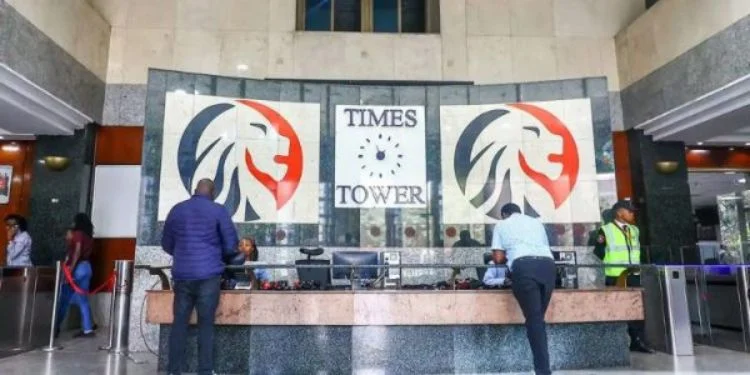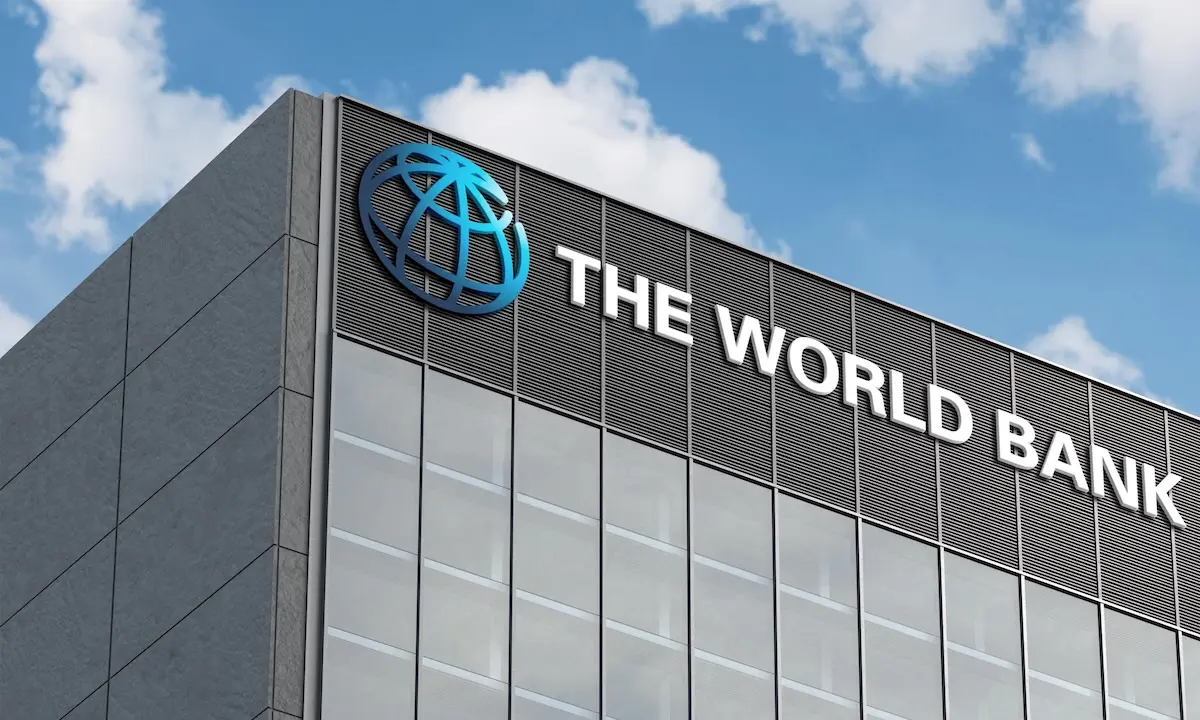Africa’s electric mobility story has long been characterized by unfulfilled promise rather than tangible progress. Infrastructure remains scarce across the continent, power grids are notoriously unreliable, and most markets continue to depend on cheap imported gasoline-powered motorcycles. However, Dubai-headquartered Spiro has spent the past two years systematically working to rewrite that narrative, and its latest funding announcement suggests the company may finally be succeeding.
The company just announced a landmark $100 million investment round led by the Fund for Export Development in Africa (FEDA), the development arm of Afreximbank. This raise marks Africa’s largest-ever electric vehicle mobility investment and firmly establishes Spiro as the continent’s most aggressive and well-capitalized electric motorbike company, positioning it to dominate a market segment that has historically been considered too fragmented and challenging to scale effectively.
Build the future you deserve. Get started with our top-tier Online courses: ACCA, HESI A2, ATI TEAS 7, HESI EXIT, NCLEX-RN, NCLEX-PN, and Financial Literacy. Let Serrari Ed guide your path to success. Enroll today.
Ambitious Expansion Plans
Spiro has announced plans to deploy more than 100,000 electric bikes across Africa by the end of 2025, representing a staggering 400% year-over-year increase that underscores the company’s ambitious vision to transform urban and rural transportation across the continent. This aggressive expansion strategy reflects both the company’s confidence in its business model and the growing appetite among investors for sustainable transportation solutions in emerging markets.
The company’s growth trajectory has been nothing short of remarkable. When CEO Kaushik Burman joined the startup two years ago from Taiwanese battery-swapping giant Gogoro, Spiro had just 8,000 electric bikes and a modest 150 swap stations spread between the neighboring West African nations of Benin and Togo. The company was essentially a regional pilot project with uncertain prospects for continental expansion.
Today, the transformation is dramatic. Spiro now operates in six countries across Africa — including Rwanda, Kenya, Nigeria, and Uganda — with over 60,000 bikes deployed and an extensive network of 1,500 swap stations, where riders can quickly exchange depleted batteries for fully charged ones. The utilization metrics are equally impressive: battery swaps have surged from just 4 million transactions in 2022 to over 27 million this year, Burman told TechCrunch, demonstrating both the scalability of the model and its acceptance among African riders.
A Business Model Built for African Realities
The secret behind Spiro’s explosive growth, according to Burman, lies in a business model specifically designed around Africa’s unique transportation realities and economic constraints. Unlike many technology startups that attempt to transplant Western or Asian business models directly into African markets, Spiro has crafted an approach that acknowledges and addresses the continent’s specific challenges and opportunities.
In African cities, motorcycle taxis — known as boda bodas in Kenya or okadas in Nigeria — serve as the circulatory system of urban and rural transportation, moving people and goods through congested cities and remote rural towns alike. These two-wheeled taxis are often the only reliable transportation option in areas with poor road infrastructure or limited public transit systems.
Yet for the millions of riders who depend on these motorcycles for their livelihood, fuel costs represent a crushing financial burden. Gasoline prices in many African countries are volatile and often represent a significant portion of riders’ daily earnings, leaving them with minimal profits despite long hours on the road.
“These drivers spend 10 to 12 hours on the road every day, covering 150 to 200 kilometers while paying high fuel costs. At the end of each day, most barely save anything,” Burman explained. “That’s why electric mobility, especially through a battery-swapping model, fits this segment perfectly. They can’t afford downtime and get to save some money.”
The Economic Advantage
The wedge that Spiro is leveraging into the market is fundamentally economic. According to Burman, the company’s electric bikes cost roughly 40% less upfront than new gasoline-powered models. In markets like Kenya or Rwanda, where a typical gas bike sells for $1,300–$1,500, Spiro’s e-bikes cost around $800, immediately making them more accessible to riders with limited capital or credit access.
But the savings don’t stop at the purchase price. Operating costs tell an even more compelling story. Spiro’s electric bikes cost approximately 30% less per kilometer to operate compared to gasoline motorcycles, since swapping batteries is significantly cheaper than refueling with petrol. This combination of lower acquisition cost and reduced operating expenses creates a powerful value proposition that has proven attractive to motorcycle taxi drivers across multiple African markets.
Burman claims that most riders — who pay a daily fee for access to Spiro’s energy network — save up to $3 per day on fuel and maintenance costs. While this might seem modest by Western standards, in African markets where daily incomes often range from $5 to $15, saving $3 per day represents a transformational improvement in economic circumstances. “That’s enough to buy another bike or start a small business over time,” the CEO remarked, highlighting how the savings compound to create wealth-building opportunities for riders.
Revenue Model and Infrastructure Strategy
Spiro generates revenue through a dual-stream model encompassing both bike sales and its battery-swapping network operations. Riders either purchase or lease a Spiro bike, pick up a charged battery at one of the company’s swap stations, and pay only for the energy they actually consume. This pay-as-you-go energy model removes the need for riders to make large upfront investments in battery ownership while ensuring they only pay for what they use.
Each swap station houses dozens of batteries that are recharged continuously, ensuring zero downtime for riders who depend on their motorcycles for income. Riders are billed via a proprietary algorithm that precisely measures energy consumption, creating transparency and fairness in pricing. The entire swap process takes just minutes, comparable to or faster than refueling a gasoline motorcycle.
The battery-swapping network itself functions as Spiro’s primary profit engine. By owning the battery infrastructure and charging a small fee per swap, the company quickly achieves economies of scale as the network expands and utilization increases. “In addition to battery swapping, we’re also using renewables and energy storage to ensure our network stays operational even during blackouts,” Burman said, addressing one of Africa’s most persistent infrastructure challenges.
Spiro’s swap stations are strategically located in gas stations, shopping centers, and even religious institutions — a diverse network built through partnerships that also creates local employment opportunities. This distributed infrastructure approach ensures convenient access for riders while embedding Spiro into the fabric of local communities.
Manufacturing and Localization Strategy
To meet growing demand and increase employment opportunities, the three-year-old startup has established four assembly and manufacturing facilities across Kenya, Nigeria, Rwanda, and Uganda. These plants assemble complete bikes and manufacture key components including traction motors, controllers, and battery systems, representing a significant commitment to local production capacity.
Spiro already assembles batteries in Kenya using its proprietary battery management system (BMS), which optimizes battery performance, longevity, and safety. The company has ambitious plans to dramatically increase local sourcing from the current 30% to 70% within two years, including components such as plastics, helmets, and brake systems, according to Burman. This localization strategy serves multiple purposes: it reduces dependence on imports, creates local jobs, lowers costs, and builds resilience into the supply chain.
The focus on local manufacturing also aligns with broader African policy initiatives such as the African Continental Free Trade Area (AfCFTA), which aims to boost intra-African trade and industrialization. By establishing manufacturing capacity across multiple countries, Spiro positions itself to benefit from regional trade agreements while contributing to the continent’s industrial development goals.
One decision can change your entire career. Take that step with our Online courses in ACCA, HESI A2, ATI TEAS 7, HESI EXIT, NCLEX-RN, NCLEX-PN, and Financial Literacy. Join Serrari Ed and start building your brighter future today.
The $100 Million Round and Future Plans
The $100 million investment round — comprising $75 million from FEDA and the remainder from other strategic investors — will provide the capital necessary to fund Spiro’s aggressive expansion plans. This latest injection follows more than $180 million in previous investments, a mix of debt and equity funding from the Equitane Group (Spiro’s parent company) and Société Générale, bringing the company’s total capital raised to over $280 million.
The new capital will be allocated toward expanding Spiro’s swap network infrastructure, increasing manufacturing capacity across existing facilities, investing in research and development for next-generation products, and launching pilot operations in new markets including Cameroon and Tanzania. These new markets represent strategic expansion opportunities, with Cameroon offering access to Central Africa’s largest economy and Tanzania providing a gateway to East Africa’s growing urban centers.
The involvement of FEDA and Afreximbank is particularly significant. As development finance institutions with mandates to promote African economic development and regional integration, their investment provides not just capital but also credibility and potential access to policy makers and additional development financing channels. This type of institutional backing can be crucial for companies operating in sectors that require supportive regulatory frameworks.
Competition and Market Opportunity
As Spiro scales its operations, the company will inevitably face competition from other electric vehicle startups operating in Africa, including Ampersand, which focuses on Rwanda and Kenya, Roam, a Kenyan electric motorcycle manufacturer, Max, which operates electric motorcycle taxis in Nigeria, and BasiGo, which focuses on electric buses in Kenya. These competitors are all vying for position in Africa’s nascent but rapidly growing electric mobility sector.
However, Burman frames the competitive landscape differently. “Our competition is the gasoline bike segment, both first and the secondhand bike segment and the millions of potential riders who don’t yet own a bike or lack access to affordable transportation and employment,” he argues. This perspective reflects a view that the electric mobility market in Africa is still so underpenetrated that competition between EV companies is less relevant than the broader challenge of converting the massive existing gasoline motorcycle market.
The numbers support this view. Africa has approximately 25 million motorbikes, compared with 320 million in India, despite the two regions having similar population sizes. This 13-fold gap, Burman notes, illustrates the enormous untapped market opportunity ahead. If Africa’s motorcycle ownership rates were to approach even half of India’s levels, the continent would need over 150 million additional motorcycles — representing a massive potential market for electric alternatives.
Broader Implications for African Development
Spiro’s success and growth trajectory have implications that extend well beyond the electric mobility sector. The company’s model demonstrates several important principles for technology and infrastructure deployment in African markets.
First, it shows the importance of adapting business models to local economic realities rather than importing solutions wholesale from other regions. The battery-swapping approach, while proven in Taiwan with Gogoro, required significant adaptation for African contexts, including different pricing structures, localized manufacturing, and infrastructure partnerships suited to African market conditions.
Second, Spiro’s focus on the motorcycle taxi segment targets a real economic pain point for millions of workers while addressing environmental concerns. This alignment of economic incentives with sustainability goals creates a more robust and scalable business model than approaches that rely primarily on environmental consciousness or government subsidies.
Third, the company’s emphasis on local manufacturing and supply chain localization demonstrates how technology companies can contribute to broader industrialization and job creation goals while building more resilient businesses. This approach aligns with African governments’ priorities and may create opportunities for supportive policy frameworks.
Fourth, Spiro’s infrastructure strategy of distributed swap stations creates network effects that become stronger as the system scales, potentially creating natural barriers to competition while improving service quality for users. This infrastructure-as-moat strategy has proven successful in other contexts and may be particularly powerful in markets where infrastructure gaps are significant.
Challenges Ahead
Despite its impressive growth and substantial funding, Spiro faces significant challenges as it scales. Africa’s electricity grids remain unreliable in many markets, potentially complicating the operation of charging infrastructure. While the company is investing in renewable energy and storage solutions, these add costs and complexity to the business model.
Regulatory frameworks for electric vehicles remain underdeveloped or unclear in many African countries, creating potential policy risks. Changes in import duties, battery regulations, or vehicle standards could impact Spiro’s business model. The company will need to actively engage with policymakers to help shape favorable regulatory environments.
Competition will inevitably intensify as the market proves itself. While Burman is correct that the primary competition today is gasoline motorcycles, success will attract more capital and competitors into the space. Maintaining technological and operational advantages will require continued innovation and investment.
Supply chain vulnerabilities remain a concern, particularly for specialized components like battery cells and motors that cannot yet be manufactured economically in Africa. Geopolitical tensions, shipping disruptions, or changes in global commodity prices could impact costs and availability of critical components.
Finally, the company must manage the complex operational challenges of maintaining quality and service standards while expanding rapidly across multiple countries with different languages, regulations, and market conditions. Scaling while maintaining the customer experience that has driven initial success is one of the classic challenges of hyper-growth companies.
Conclusion: A Pivotal Moment
Spiro’s $100 million funding round represents a pivotal moment not just for the company but for Africa’s electric mobility sector more broadly. The scale of the investment, the credibility of the investors, and the company’s operational track record all signal that electric mobility in Africa has moved from experimental pilots to serious commercial deployment.
For the millions of motorcycle taxi riders across Africa, Spiro’s expansion promises tangible economic benefits through lower operating costs and improved working conditions. For cities struggling with air pollution and traffic congestion, electric motorcycles offer a cleaner, quieter alternative to gasoline-powered bikes. For the continent’s climate commitments, accelerating the transition to electric mobility represents an important pathway to reducing transportation emissions.
The coming years will test whether Spiro can execute on its ambitious expansion plans while maintaining operational excellence and financial sustainability. But with $280 million in capital raised, a proven business model, and strong momentum across multiple markets, the company is well-positioned to lead Africa’s electric mobility revolution. The promise is finally becoming progress.
Ready to take your career to the next level? Join our Online courses: ACCA, HESI A2, ATI TEAS 7 , HESI EXIT , NCLEX – RN and NCLEX – PN, Financial Literacy!🌟 Dive into a world of opportunities and empower yourself for success. Explore more at Serrari Ed and start your exciting journey today! ✨
Track GDP, Inflation and Central Bank rates for top African markets with Serrari’s comparator tool.
See today’s Treasury bonds and Money market funds movement across financial service providers in Kenya, using Serrari’s comparator tools.
photo source: Google
By: Montel Kamau
Serrari Financial Analyst
22nd October, 2025
Article, Financial and News Disclaimer
The Value of a Financial Advisor
While this article offers valuable insights, it is essential to recognize that personal finance can be highly complex and unique to each individual. A financial advisor provides professional expertise and personalized guidance to help you make well-informed decisions tailored to your specific circumstances and goals.
Beyond offering knowledge, a financial advisor serves as a trusted partner to help you stay disciplined, avoid common pitfalls, and remain focused on your long-term objectives. Their perspective and experience can complement your own efforts, enhancing your financial well-being and ensuring a more confident approach to managing your finances.
Disclaimer: This article is for informational purposes only and does not constitute financial advice. Readers are encouraged to consult a licensed financial advisor to obtain guidance specific to their financial situation.
Article and News Disclaimer
The information provided on www.serrarigroup.com is for general informational purposes only. While we strive to keep the information up to date and accurate, we make no representations or warranties of any kind, express or implied, about the completeness, accuracy, reliability, suitability, or availability with respect to the website or the information, products, services, or related graphics contained on the website for any purpose. Any reliance you place on such information is therefore strictly at your own risk.
www.serrarigroup.com is not responsible for any errors or omissions, or for the results obtained from the use of this information. All information on the website is provided on an as-is basis, with no guarantee of completeness, accuracy, timeliness, or of the results obtained from the use of this information, and without warranty of any kind, express or implied, including but not limited to warranties of performance, merchantability, and fitness for a particular purpose.
In no event will www.serrarigroup.com be liable to you or anyone else for any decision made or action taken in reliance on the information provided on the website or for any consequential, special, or similar damages, even if advised of the possibility of such damages.
The articles, news, and information presented on www.serrarigroup.com reflect the opinions of the respective authors and contributors and do not necessarily represent the views of the website or its management. Any views or opinions expressed are solely those of the individual authors and do not represent the website's views or opinions as a whole.
The content on www.serrarigroup.com may include links to external websites, which are provided for convenience and informational purposes only. We have no control over the nature, content, and availability of those sites. The inclusion of any links does not necessarily imply a recommendation or endorsement of the views expressed within them.
Every effort is made to keep the website up and running smoothly. However, www.serrarigroup.com takes no responsibility for, and will not be liable for, the website being temporarily unavailable due to technical issues beyond our control.
Please note that laws, regulations, and information can change rapidly, and we advise you to conduct further research and seek professional advice when necessary.
By using www.serrarigroup.com, you agree to this disclaimer and its terms. If you do not agree with this disclaimer, please do not use the website.
www.serrarigroup.com, reserves the right to update, modify, or remove any part of this disclaimer without prior notice. It is your responsibility to review this disclaimer periodically for changes.
Serrari Group 2025
















